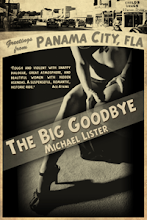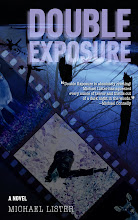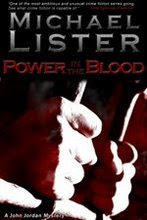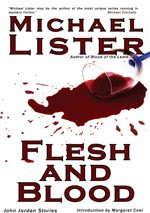
As I write this, I’m watching the 83rd Annual Academy Awards, searching for inspiration, hoping something said in an acceptance speech or a scene played from last year’s most honored films will spark an idea for this week’s column.
And it worked.
But not like I imagined (imagine that).
Several ideas came. And went. Like falling flakes in too-warm weather, nothing stuck.
At one point, a friend IM’d me on Facebook and asked what I was doing. When I told her, she began to offer suggestions for what I might write about—most of them far better than my own thoughts. But, again, not one of the many wonderful seeds she was sowing took root.
And so, with a deadline looming, which of course they always do, I had many, many ideas, but not one that felt right for this column.
Until . . .
I began to muse about the differences between ideas and inspiration.
I have ideas all the time—lots and lots of them; many before I ever started watching the Oscars—ideas for columns, novels, movies, short stories and a host of other random and unrelated things. But in the way only one of the thousands of acorns that rain down from an enormous oak becomes itself an oak, few ideas are ever more than that—ideas.
Ideas are easy. Execution is the thing.
From the moment my first novel came out in the fall of 1997, I’ve had countless people want to give me their ideas for books—and my response is always the same. I can’t get to all of my own ideas. And if it’s your idea, it’s probably your book to write.
An idea is defined as “a thought or conception, that potentially or actually exists in the mind as a product of mental activity; an opinion, conviction, or principle; a plan, scheme, or method; a notion; a fancy.”
This isn’t entirely unrelated to inspiration, but, in my experience, it’s different enough to make all the difference in the world.
Inspiration is defined as “stimulation of the mind or emotions to a high level of feeling or activity; an agency that moves the intellect or emotions or prompts action or invention; a sudden creative act or idea, that is inspired; divine guidance or influence exerted directly on the mind and soul of humankind; the act of drawing in, especially the inhalation of air into the lungs.”
These definitions get at part of what I think is the biggest difference between an idea and inspiration.
An idea remains a thought or concept in the mind, while inspiration stimulates us beyond thought and feeling into activity.
Ideas are involved, of course.
Everything begins with an image, a thought, an idea—but, if inspiration, this is truly just the beginning. An idea can be a seed for inspiration, but inspiration moves us beyond the idea—the seed sprouts.
There’s an alchemical process involving passion, maybe even obsession , that transforms an idea into an action or causes some ideas to be inspired, while others aren’t (or aren’t yet), and I no more understand it than any of the great, thrilling, humbling, inspiring mysteries of existence. But it is inspiring—inspiration itself inspires.
We can ponder ideas, but inspiration propels.
And though inspiration is a mystery—utterly beyond us and out of our control, we can court it.
I pursue and woo my muse with an earnest relentlessness akin to madness of a sort only certain types of obsessed lovers can fathom—spending my mornings and midnights trying to seduce her.
I fill my life with people and things I find inspirational—art and artists; books and writers; music, fun, friends, soulful sinners and saints, lovers, thinkers, characters, and kind, compassionate people.
My writing room, the space I spend more time in than any other, is filled with thousands and thousands of books, with photographs and paintings, with images and icons, with gifts and mementos. Often, particularly when I’m writing, the room flickers in candlelight, as incense and instrumental music floats around.
But none of this guarantees inspiration. It’s just preparation and invitation—invocation of a type not unlike religious devotion.
I never know what will inspire a column. Sometimes something in a mediocre movie will provoke a thought that blossoms, while a fine film or book, though inspiring in itself, offers me no way in, no tunnels, no hooks, nothing that sticks to grey cells, nothing that penetrates the soil of soul.
The same applies to all my creative endeavors—from novels to nature photography—and to nearly all of life.
If I don’t know when or from where inspiration will come, I can but be ready at all times. I’m not, of course, but I attempt to be prepared, to be open, to look and listen, to seek and woo.
In this way, the writing life, like the creative life, like the soulful life, is like the best and wisest life any of us can lead. Hone our sensitivity and receptivity, be diligent in our preparation and searching, learn to listen, learn to live the Buddha’s awakened life, for we never know when the still small voice inside us will speak, when our muse will tickle our ear with soft whispers, when the wind or a wren might have a message for us.
As Frederick Buechner so extraordinarily and eloquently puts it, “Listen to your life. See it for the fathomless mystery that it is. In the boredom and pain of it no less than in the excitement and gladness: touch, taste, smell your way to the holy and hidden heart of it because in the last analysis all moments are key moments, and life itself is grace.”
Ultimately, inspiration is a mystery, but it’s as basic to our nature as breathing (the very act the word comes from)—drawing in and letting out. In and out. In and out. Just breathe. Breathe in the universe in each inspiring inhalation. This is meditation. This is inspiration. This is love. This is life. In and out. In and out. Removing any obstruction, all impediments, we open our hearts and minds, our souls and spirits, to the Mystery. In and out. In and out.















